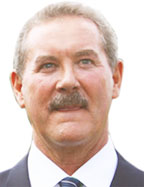 HOUSTON, (Reuters) – Mutual funds that are not held in custodial Stanford Finan-cial Group accounts should be released from a court-ordered asset freeze, an attorney overseeing the company’s affairs and assets said in a statement on Monday.
HOUSTON, (Reuters) – Mutual funds that are not held in custodial Stanford Finan-cial Group accounts should be released from a court-ordered asset freeze, an attorney overseeing the company’s affairs and assets said in a statement on Monday.
Last week, the U.S. Securities and Exchange Commission charged Texas billionaire Allen Stanford with fraudulently selling $8 billion in certificates of deposit with improbably high interest rates from his Stanford International Bank, which is based in Antigua.

A receiver, attorney Ralph Janvey, was appointed by the U.S. District Court in Dallas, Texas, and he froze some of the company’s assets.
Janvey urged U.S. politicians on Monday to return to investors any donations that were made by Stanford.
A statement on the receiver’s website, http://stanfordfinancialreceivership.com/documents/Press_Stateme nt_022309.pdf, said that mutual fund assets held outside Stanford’s custodial relationships with Pershing LLC and J.P. Morgan Clearing Corp should be released.
Investors, some of whom have their life savings in Stanford accounts, are growing increasingly anxious about their investments since the receiver froze them last week.
One investor, Texas attorney Trent Rosenthal, filed a lawsuit on Friday asking a federal judge to dissolve the order freezing assets that put him and thousands of others into financial limbo.
A hearing on the freeze order is scheduled for on March 2.
Letters were sent to the Democratic Senatorial Campaign Committee and the National Republican Congressional Committee, the fund-raising arms of the parties.
“If you have already donated such amounts to a charity, we request you consider donating an equal amount to the Receivership Estate,” the letters from Janvey said.
Last week, U.S. lawmakers and President Barack Obama vowed to donate to charity the campaign donations they received from Stanford.
During the past decade, Stanford’s company spent $4.8 million on lobbying, according to the Center for Responsive Politics, a private group that tracks money and politics in the nation’s capital.









